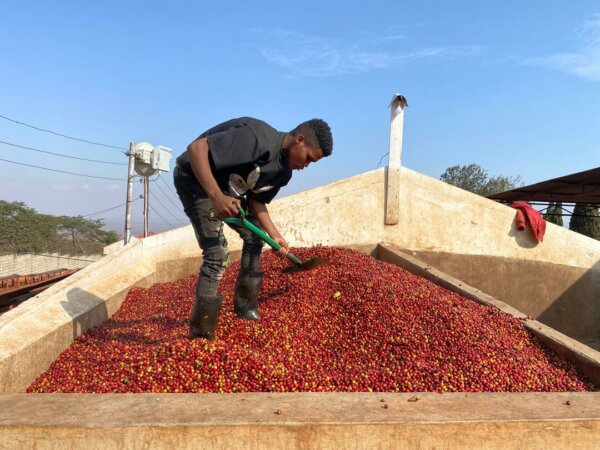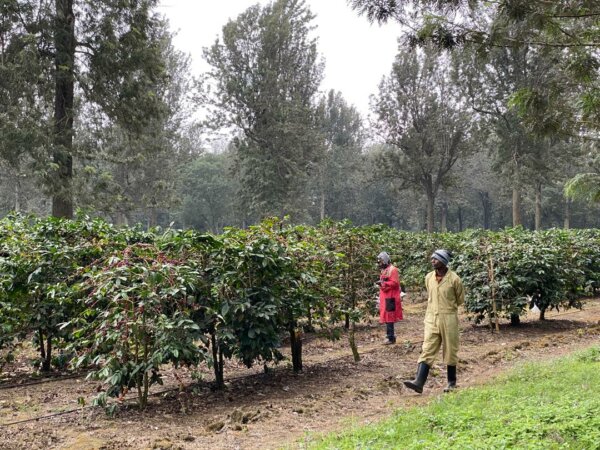We’re happy to announce that we’re bringing in a small slate from Tanzania, a relatively new origin for us and one in which we see a strong future. These coffees present an ideal nexus of price and quality—easy drinkers that can easily do double-duty in blend and single origin spots. They’re on the water now and should land in late January.
Working with a tenured and trusted trade associate from our Rwanda and Kenya relationships in Northern Tanzania’s Arusha and Mara Zones, we’ve curated a highly selective menu with lots from 3 different source partners: Tarime, Mondul, and Burka. With top notes of sultana, mandarin, dried mango, Earl Grey tea, and sweet basil underpinned by bass notes of milk chocolate/chocolate milk and a rich, creamy mouthfeel, these lots are notable in that they’re highly approachable but still nuanced and elegant.

Those who have been in the industry for long enough might remember the popularity of Tanzania peaberry in second-wave coffee, but these coffees are fully of the present. Farmers throughout the country used to process with a style of depulping more similar to a wet hulling, which lent both its own specific processing flavor and sometimes a tendency towards rapid aging that we see in other regions with similar processing styles. Now, they’ve moved to an ultra-clean washed process. Recognizing the immense potential in this area, local sourcing organizations have invested heavily in agronomic training for the local producer communities, and that’s the quality we’re seeing when we cup these coffees.
Tanzania’s grading system is similar to Kenya’s, using AA, AB, and PB. We bought a small quantity of both AA and AB grades.
The predominant variety is Kent, and much of what grows are hybrids or Bourbon mutations similar to those in Kenya—not varieties you see anywhere else. Even though the profile is approachable, it’s still distinct.
Another special feature of sourcing in Northern Tanzania is that as local temperatures have risen over time with climate change, it’s actually made it easier to dry coffee cleanly. While its critical to address the negative climate change impacts we see in well-established specialty sourcing regions, we are also always looking for areas where the climate becomes more favorable for top-tier specialty coffee with time.

Northern Tanzania also features unique timing. Harvest finishes in October, so these coffees will arrive after the fall wave of Rwanda arrivals and before the early spring arrivals of Ethiopia and Kenya—adding a fresh menu item rarely seen in the top-tier specialty world, at a time between the usual East African offerings.
We’ve kept this year’s roster highly curated, but we’re excited to grow here in the future.
Interested in sourcing coffee with us? Reach out at info@redfoxcoffeemerchants.com. To learn more about our work, check out our journal and follow us on Instagram @redfoxcoffeemerchants.
